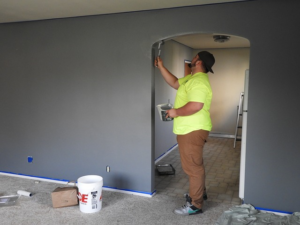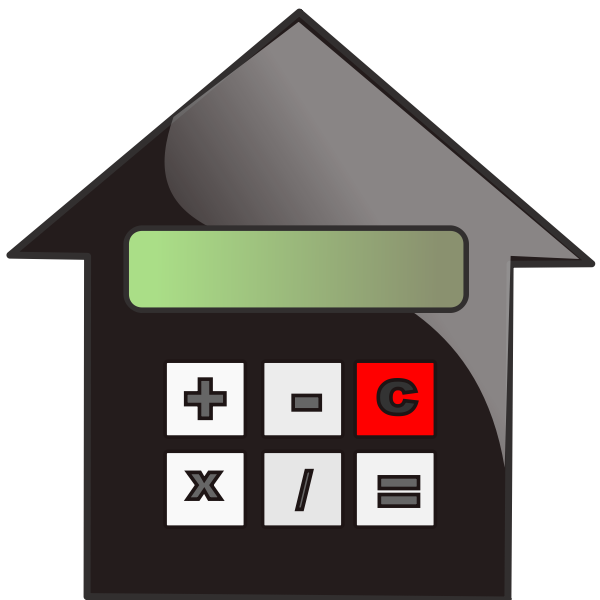
The mortgage deed: one of the most important legal documents you’ll come across when you set out on the homeownership journey. Well, whether you’re buying a house, refinancing your home or building a home at all, all with the help of a VA loan, you need to know what this mortgage deed is and why it matters to you so you can be prepared to protect your rights and have an easier time of it financially.
Let’s look at what a mortgage deed is, why it’s such an essential part of real estate, and its relationship to lending to veterans such as the VA construction loan process and mortgage planning.
What Is a Mortgage Deed?
A mortgage document, also known as a deed of trust, is a contract between the borrower and lender that secures a loan with real estate. It’s the document that establishes the terms of the loan between a lender and the borrower, and also, makes a legal claim on the home as repayment if the borrower violates the terms of the mortgage.
It typically includes:
- The names of the borrower and lender
- A full description of the property
- Loan terms (amount, interest rate, payment schedule)
- The lender’s rights in case of default
A third-party trustee may hold the deed until the loan is paid in full in many states. After you have satisfied your mortgage, the deed is reconvened to you, removing the title.
Why the Mortgage Deed Matters
A mortgage is much more than a ceremony. It performs a number of critical functions in the home loan process:
1. Legal Security for the Lender
Lenders need to have confidence that their investment is secure. The mortgage is the security that provides that guarantee. If the borrower fails to make the payments, the lender can foreclose on the property and recover it via the court system.
2. Ownership Clarity
A mortgage deed lets someone know who owns the property and what rights another has until the mortgage is paid off. This clarity becomes crucial when it comes to resale, refinance or inheritance.
3. Borrower Accountability
Signing a mortgage deed is a contract. It puts the responsibility on you to pay off the loan per the agreed terms and enforces financial restraint during the tenure of the mortgage.
How It Fits into the Homebuying Process
Before you even close on a home, or obtain a building loan to build one, there will be several documents that will come your way loan disclosures, credit reports, title documents, and lastly, the mortgage deed. After it is signed and notarized, the deed is filed with the local government and becomes a public record.
For VA loan cases, this also involves additional procedures in accordance with the rules of Veterans Affairs. It is part of why using a VA approved builder is so necessary when building a home with a VA construction loan but it is not the most “Inspiring” VA ownership coverage part! These builders know what the special requirements are and legal requirements are with VA backed lending.
How the Mortgage Deed Affects Veterans
The mortgage deed for veterans financing the purchase or construction of a house with a VA loan makes certain that the building and the loan recipient are both shielded by federal and state law. The Department of Veterans Affairs guarantees part of the loan, making it less risky for the lender, and therefore offers veterans good terms.
Because VA loans typically don’t require a down payment and feature competitive interest rates, knowing the legal framework particularly the deed can save loads of hassle or mistakes down the line. If veterans want to avoid potential problems with the title transfer or deed recording, they need to confirm that their builder is registered with and adheres to VA standards.
Applying for a VA-Backed Mortgage
Whether you’re buying an existing home or building it from scratch, your lender will need documentation to support the application via things like the Full Loan Application (Floify). The application is easy and modern and all documents can be uploaded and reviewed securely, such as the mortgage deed and the certificate of eligibility.
An experienced loan officer and full comprehension of how mortgage deeds function can also speed up approval the less back and forth during underwriting, the faster the closing.
Why Legal Review Is Crucial
Even if you are comfortable with the terms of your mortgage, always seek consultation with legal professionals. Deeds of Trust Deeds can are costly & the enforceable terms vary per state and sometimes loan type. It could lead to expensive misunderstandings.
If you ever feel misrepresented or misinformed, fear not: Legal safeguards exist to shield the public from illegal or inaccurate reports. There are ways to get help through your lender, with the Legal Department or Complaint department, or you can reach out for guidance to veteran-specific legal aid agencies.
Transparency and Trust in Mortgage Lending
In an age of online reviews and digital lending, trust matters. That’s why organizations and lenders that adhere to Editorial Integrity are critical. They publish accurate, unbiased information so you can make informed decisions. Whether you’re choosing a mortgage product or selecting a builder, this transparency helps ensure your financial safety.
Real Stories, Real Results
I’ve heard from many veterans who’ve said VA loans and knowledge of a mortgage deed put them on the path to homeownership. Read Testimonials from real borrowers that have used VA loans to build or purchase their dream home! Here, their stories speak to the value of paperwork, reputable lenders and legal clarity.
Are You Eligible?
If you are a service member, veteran, or the surviving spouse of a vet, the first step is establishing whether you’re eligible for a VA loan. Eligibility is based on your amount of service, duty status, and character of discharge. Upon verification, then you can start purchasing with certainty.
With your qualification, you will receive lower rates, less fees, and no PMI (private mortgage insurance). But keep in mind eligibility doesn’t let you off the hook for understanding and signing the mortgage deed properly.
Giving Back to Those Who Served
Selecting professionals specializing in mortgages and builders who support veteran charities is an amazing way to give back. Many of these opportunities lead to contributions as well as other forms of collaboration, such as employment prospects and community development projects, well beyond home ownership.
By choosing VA-centric enterprises you reach beyond a brick or mortar reality to support a larger mission aimed at improving the lives of veterans and their loved ones long after the last deed has been signed.
Final Thoughts
The mortgage deed might look like another form in the pile of paperwork, but it’s actually the key document that forms the backbone of your home loan. It establishes ownership, safeguards lenders, and involves the borrower in a legal commitment to pay it back. For veterans, it is also the promise of one foreign battle fought on their behalf in exchange for the chance to own a home in a nation that values their service.
So whether you’re constructing from an approved VA builder list, through Floify, or you’re checking out your VA Loan Eligibility, just don’t forget: The theme of the mortgage deed is really not legal or code. It’s about trust, security, and the cornerstone of your future.
Knowing how to read this one form can mean the difference between not only getting through the lending process, and also ensuring long-term success as a homeowner.


